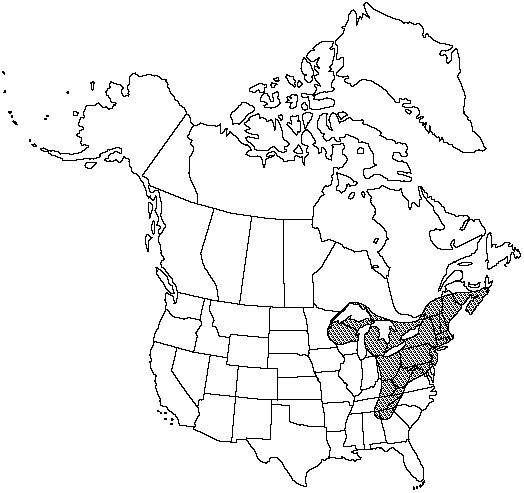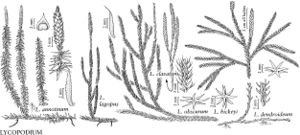Lycopodium obscurum
Sp. Pl. 2: 1102. 1753.
Horizontal stems subterranean. Upright shoots treelike, many branched, branchlets numerous and strongly differentiated; annual bud constrictions absent; leaves on main stem below lateral branchlets tightly appressed, needlelike, 3.5–4.5 × 0.6–0.7 mm, soft. Lateral branchlets flat in cross section, 6–9 mm diam.; annual bud constrictions inconspicuous. Leaves in 6 ranks, 1 on upperside, 4 lateral, ascending-spreading, 2.5–5.5 × 0.5–1.2 mm, and 1 on underside, much smaller than others, ascending; margins entire; apex lacking hair tip. Strobili 1–6 at tip of shoot, sessile, 12–60 mm. Sporophylls 3 × 2 mm, apex long, gradually narrowing. 2n = 68.
Habitat: Rich hardwood forests and successional shrubby areas
Elevation: 0–1600 m
Distribution

N.B., N.S., Ont., Que., Ala., Conn., Del., Ga., Ky., Maine, Md., Mass., Mich., Ohio, Pa., N.H., N.J., N.Y., N.C., R.I., S.C., Tenn., Vt., Va., W.Va., Wis.
Discussion
Selected References
None.
